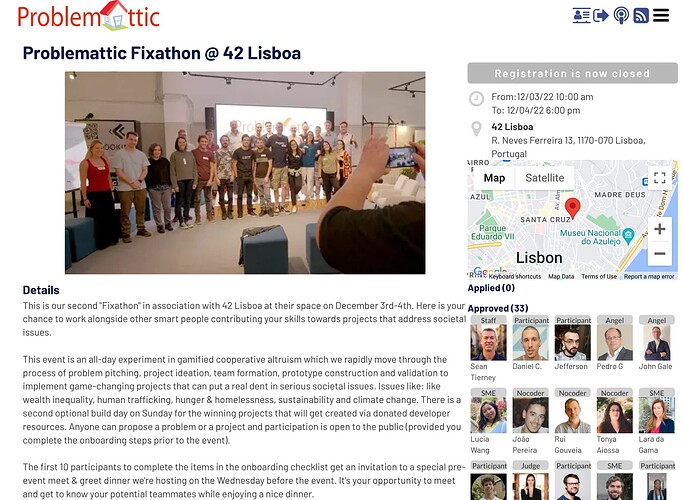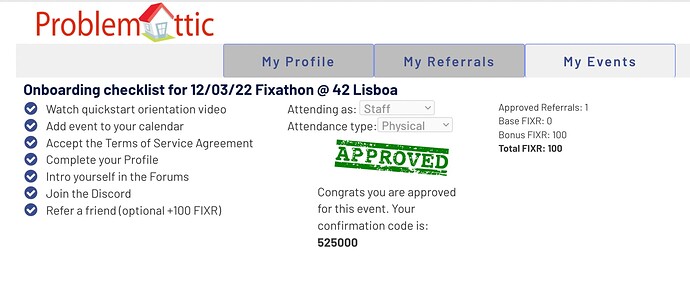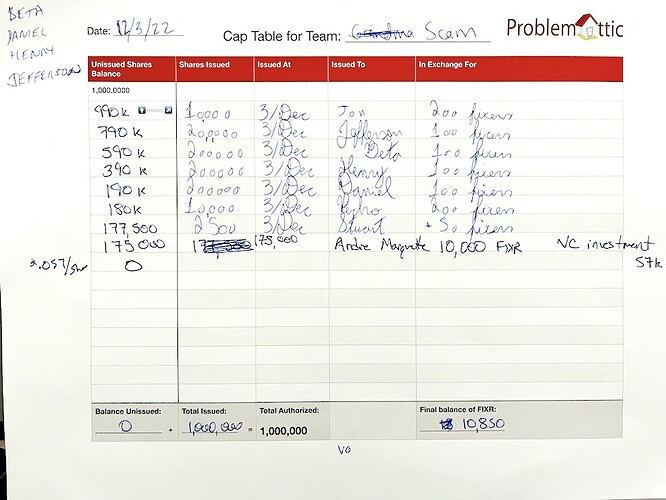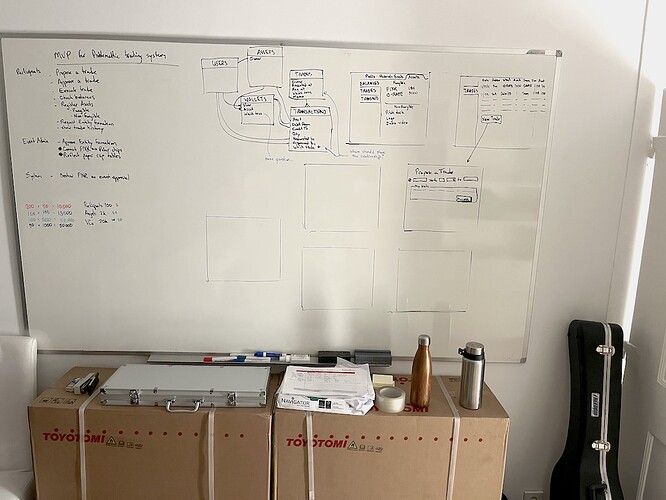The main focus of November was in gearing up to test the big epiphany from the last event around creating a “mini services economy” in the room for the next hackathon. We had our Lisbon event this past weekend. I recapped that here and made another five pages of handwritten journal notes on key takeaways and improvements here.
Main Advancements
Platform-wise I rolled out a couple of key features. I finally brought event management into the app and got us away from reliance upon Meetup.com for managing our events.
Meetup now becomes for us just a distribution channel like Eventbrite for reaching prospective participants and funneling them towards our event listing for signup. This is important for a couple reasons:
- Having event management handled by an external system means we’re limited in controlling the signup and approval process and even with a tool like Zapier it’s clunky to have participant data live across multiple systems.
- Economically it’s pricey and doesn’t scale well ($150/yr/3 cities).
- Events are core to this effort and I don’t like the idea of being entirely dependent on an external service we don’t control for that.
- It greatly complicates logistics as soon as you use multiple services like Eventbrite and Hackathons.com to get additional distribution because now you’re managing signups across multiple systems.
- It precludes you from doing what I envisioned with rewarding referrals.
So bringing event management into the app was a cornerstone step that needed to happen.
That facilitated the next big feature rollout which was a self-guided onboarding checklist that each applicant had to complete before being approved for the event:
We had a real no-show issue at these events with 70%+ of applicants not attending the Fixathon. Implementing the checklist was an advancement in reducing this truancy as that came down to about 50% for this last event but it’s still higher than I would like. I had what I believe is a key insight following this past event on how we solve this and simultaneously offload the manual promotional legwork for getting the right people in the room that currently falls all on me.
Other Wins
The other main thing that consumed a huge chunk of time was in building the MVP of a trading platform that will enable us to do in the app what we did in the room with poker chips and paper cap tables. I had this insight at the last event to apply and idea I had used way back in the day at a previous startup to create a free market within the room of subject matter experts who would “sell” their services to the projects helping them with what they needed and in exchange receive poker chips which they could then invest back in the projects they liked for fictitious shares of stock.
This worked well for aligning everyone and I think made the experience overall way more fun for everyone. It led to a really interesting way to judge the final winner too: it was the project with the highest valuation at the end of the night after the VC’s made their investment offers.
What started as a sketch on the whiteboard last month…
is now very close to being deployed as a core feature of the app which will enable people to self-coordinate amongst projects:
This was the main epiphany from the last one: that the trading platform feature if done properly would solve issues around continuity between events, create an efficient and fun way for people to work together and for value to be acknowledged and rewarded and provide a foundation to enable a DAO to be formed for each project that wanted to continue onward.
Challenges
As always the main constraint is on my time allocation and prioritizing features but the main challenges I see are these:
- These in-person events are incredibly valuable for learning about what motivates people, how they collaborate, what causes they value, etc but they take a ton of time and social capital to setup. Need to push the promotional legwork aspect to the prospective attendees.
- If this ^^ is done right it can be the same demand-driven mechanism used to unlock new cities (this idea of the “meritocracy-based unlock”).
- My assistant Marko spent 14.5hrs total doing followup with people on this last event. A lot of that can be automated but it’s a matter of layering in marketing automation.
- The no-show ratio at the events is still unacceptably high. Given tickets are free and there is no real skin in the game for applicants it’s easy to blow it off. The checklist screening feature was a step in the right direction but we need a better social commitment type instrument for accountability.
- The poker chip / cap table pilot was good overall but also confused a lot of people. It can be simplified by making a “Venmo-like” simple experience within the app. This would enable other cool capabilities like real-time valuation tickers and a more exciting judging experience where they can get creative with multi-stakeholder trades.
Next Month’s Focus
I’ve loaded up a queue of features in the Trello roadmap called “Winter Dev Push” to address all the above issues. The main features I’m focused on developing:
- Deploy v1 of the trading platform and load it with data from the last event. Test it. Make it as simple and intuitive as possible for people to use at the event. It should have a QR code “Venmo-style” simple way to accept a proposed transaction. Ability to do new stock issuance with dilution and some form of vesting or options that expire to address the issue of participants going inactive and holding a chunk of ownership.
- Kickstarter-like experience for making the event happen. An event date is proposed and only firms up once a threshold of approved attendees is crossed. Applicants are rewarded for approved attendees they bring and more so when they show up. Street teams can get posters with their unique referral QR code for tracking the attendees they originate.
Extending this idea it should be possible to bootstrap a city in this way where early local ambassadors can rally interest to a critical threshold at which point it unlocks the city and they’re rewarded for the downline they create in terms of referrals. Everything is gamified and shown on a leaderboard. - Test the idea of accountability partners - family and friends “sponsor” you in attending the event and get updates on your progress.
- Automate Marko out of his followup duties leading up to the event. Prospective attendees should get emails tailored to their role and what goals they have yet to complete.
There’s a ton more in the roadmap but I’d say these are the four key pieces that if implemented should take us to the next level. Happy Holidays.




